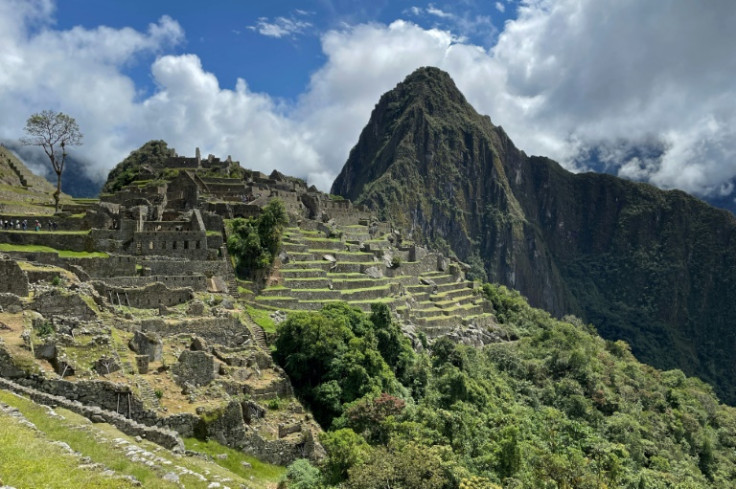Protests That Blocked Tourism Lifted At Peru's Machu Picchu

Protests that halted tourism at Peru's famed Incan citadel Machu Picchu for six days have been called off after an agreement between the government and residents, both sides said Wednesday.
The strike began after a government decision to privatize ticket sales to the country's most-visited site, and led to the evacuation of some 1,200 tourists by train after they were caught up in the protests -- some without laying eyes on the ancient site.
"We have the good news that the strike is being lifted," Culture Minister Leslie Urteaga said on the RRP radio station, adding that the deal to hand over ticket sales to a private company would be canceled.
A spokesman for the residents, Darwin Baca, confirmed the decision "to lift the indefinite strike," resume operating businesses around the site and lift a blockade of the railway leading to Machu Picchu.
"Tourist activities are normalizing," he added.
Official calculations show the strike lead to daily losses of $263,000.
The new ticketing system was billed by the culture ministry as a means to control visitor flow at the popular historic site and curb corruption with regards to in-person ticket sales.
The Peruvian company Joinnus began running the online ticketing operation on January 20 and was meant to remain in charge until August.
The government and residents agreed the sale of tickets would continue as long as there is a "transition process" toward a new government-run platform.
"Every effort is being made to break with a mafia illegally misusing the (sale of) tickets, and we are not going to take a step back from the need to change this model of corruption," said culture ministry chief of staff, Alberto Otalora.
In January last year, Machu Picchu was closed for 25 days amid protests over the impeachment and arrest of then-president Pedro Castillo.
And last September, Peru temporarily closed three sectors of the site due to the impact of the heavy volume of visitors.
Sitting northwest of the city of Cusco, Machu Picchu was built in the 15th century at an altitude of 2,500 meters (8,200 feet) on orders from the Inca ruler Pachacutec.
It is considered a marvel of architecture and engineering and was declared a UNESCO World Heritage site in 1983.
Tourism is key to Peru's economy, with the country attracting about 4.5 million visitors per year prior to the coronavirus pandemic in 2020.
The number of daily access tickets to the citadel increased to 4,500 per day starting this month, from an earlier maximum of 3,800.
© Copyright AFP 2024. All rights reserved.



















